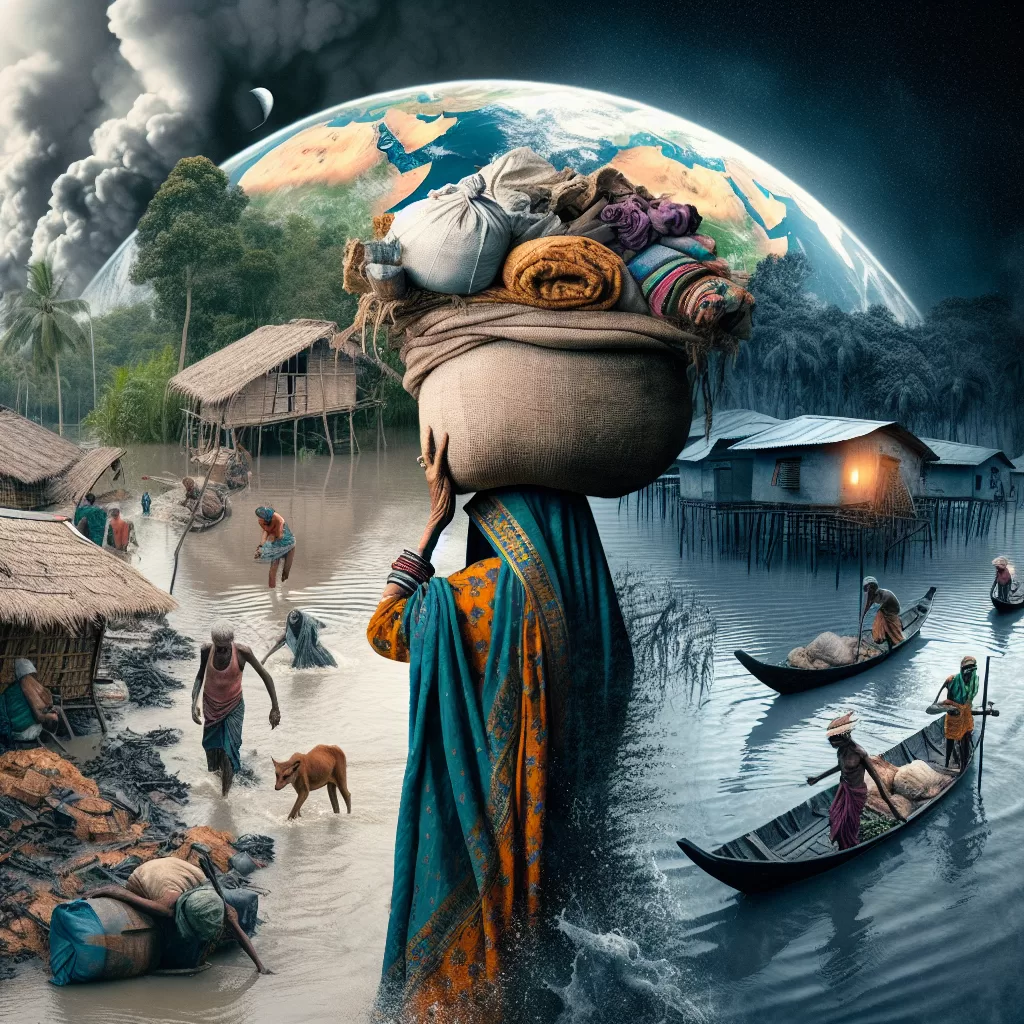Bangladesh, a nation highly vulnerable to climate change impacts, faces a troubling reality – a growing number of its citizens displaced by environmental disasters are falling prey to modern slavery practices. A new study by the International Institute for Environment and Development (IIED) reveals a vicious cycle pushing Bangladeshi climate migrants into exploitative labor situations.
The research, based on interviews and surveys across two climate-affected districts, paints a grim picture. Over 70% of households reported at least one family member leaving to seek work elsewhere, either within Bangladesh or in Gulf States, due to intensifying climate impacts like cyclones, floods, and sea-level rise.
Distressing Findings on Forced Labor
The findings expose the alarming extent of forced labor experienced by these climate migrants. A staggering 92% of internal migrants and virtually all overseas migrants reported enduring at least one form of modern slavery, as defined by the International Labor Organization. These include wage withholding, physical violence, restricted movement, and debt bondage.
Ritu Bharadwaj, an IIED principal researcher, emphasized, “Modern slavery is a not a direct impact of climate change, it is a cost of inaction.” Lacking climate-resilient infrastructure and social safety nets, climate victims are forced to migrate under distressing conditions, heightening their vulnerability to exploitation.
A Downward Spiral of Climate Impacts and Exploitation
The study highlights a concerning pattern – climate impacts compound socio-economic vulnerabilities, driving displacement and migration as a last resort. However, migrants often find themselves trapped in modern slavery practices, unable to return home due to mounting debts and losses.
Bharadwaj explained, “Those migrating overseas, often at significant cost to themselves, ‘gamble’ on improving their living conditions but become trapped in modern slavery, knowing they have nothing to come back to in Bangladesh.”
Addressing the Crisis through Systemic Solutions
Experts emphasize the need for comprehensive measures to break this vicious cycle. Investing in climate-resilient infrastructure, diversifying income opportunities, and implementing anticipatory social protection programs could reduce the desperation driving climate migration.
For those who do migrate, creating safer migration pathways, regulating job recruiters, and establishing support systems in destination countries are crucial steps towards protecting human rights and preventing exploitation.
As Bangladesh grapples with the escalating impacts of climate change, addressing the root causes of forced migration and safeguarding the rights of climate migrants emerges as a pressing humanitarian imperative. Concerted global action and support are vital to ensure a just transition for those displaced by environmental crises.
Tags: #ClimateChange #ForcedLabor #ModernSlavery #Migration #Bangladesh #HumanRights #SocialProtection #EnvironmentalJustice

